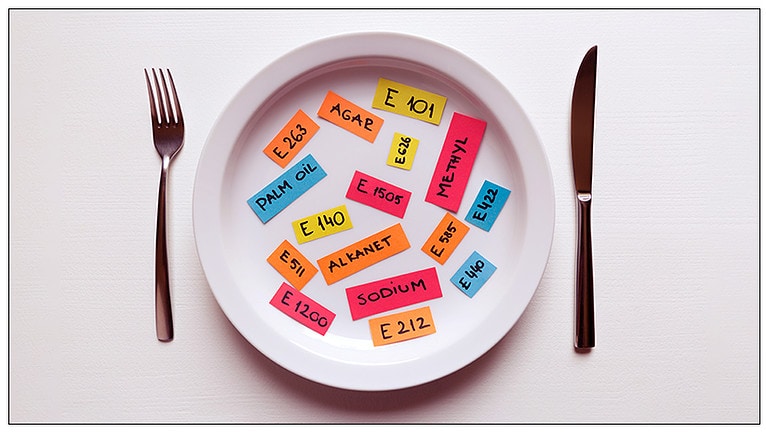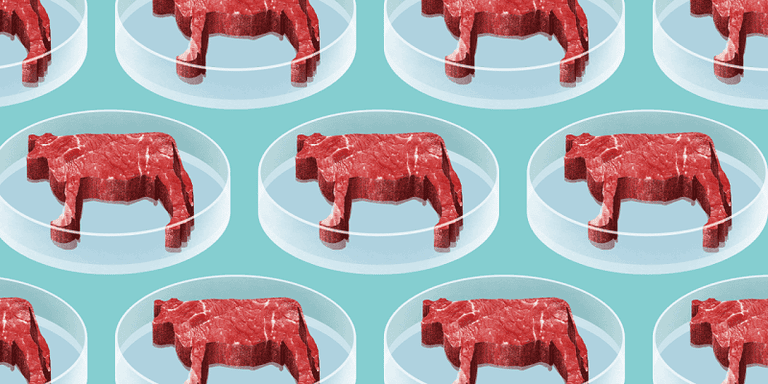Can Eating Healthy Make You Feel Sick?
Eating healthy is one of the best things you can do for your body. It can help you maintain a healthy weight, reduce your risk of chronic diseases, and improve your overall well-being. However, some people may experience negative side effects when they switch to a healthier diet. Down below, I will explore whether eating healthy can make you feel sick and what you can do about it.
One reason why some people may feel sick when they start eating healthier is that their bodies are adjusting to the new diet. For example, if you are used to eating a lot of processed foods and suddenly switch to a diet rich in fruits, vegetables and whole grains, you may experience bloating, gas or other digestive issues. This is because your body needs time to adjust to the new types of foods and the increased fiber intake.
Another reason why eating healthy can make you feel sick is that your brain may be craving certain foods that you are no longer consuming. Foods that are high in salt, sugar and fat combined (those delicious donuts for example) can trigger the release of “feel-good” neurotransmitters like dopamine, which can activate the brain’s reward center. When you switch to a healthier diet, you may experience cravings for these types of foods, which can lead to feelings of discomfort or even withdrawal symptoms.

Understanding Healthy Eating
As someone who has experienced negative effects after starting to eat healthier, I understand the confusion and frustration that can come with trying to navigate a new way of eating. However, it’s important to understand what healthy eating actually means, so you can endure in your new endeavor.
Healthy eating is about nourishing your body with nutrient-dense foods that provide energy, support bodily functions, and help prevent chronic diseases. This includes a variety of fruits, vegetables, whole grains, lean proteins and healthy fats.
It’s important to note that healthy eating is not about deprivation or strict limitations. In fact, it’s okay to indulge in your favorite treats in moderation. The key is to focus on balance and overall healthy eating patterns rather than obsessing over individual foods or nutrients.
One common misconception about healthy eating is that it’s all about cutting out certain foods or food groups. However, this is not necessarily the case. While some people may choose to eliminate certain foods for health or ethical reasons, it’s not necessary for everyone.
Instead, focus on incorporating more nutrient-dense foods into your diet while still allowing yourself to enjoy your favorite foods in moderation. This can help prevent feelings of deprivation or restriction, which can lead to unhealthy eating behaviors.
So, understanding what healthy eating really means can help you make wiser choices about your diet and prevent feelings of sickness or discomfort.
Possible Reasons for Feeling Sick
When transitioning to a healthier diet, it is not uncommon to experience some discomfort. Here are some possible reasons why you might feel sick after eating healthier:

Dehydration
One reason why you might feel sick after eating healthier is dehydration. Some diets, especially low-carb diets, can cause your body to shed excess water. Even if you maintain your usual amount of water consumption, you might find yourself mildly dehydrated, which can cause dizziness, rapid heartbeat, and faster breathing. It is important to stay hydrated by drinking enough water throughout the day.
Sudden Increase in Fiber Intake
If you have a very high-processed diet, and you decide to really boost up your fiber intake, too much at once can be quite overwhelming for your body. Your gut needs time to adjust to the increased fiber intake, and this can cause discomfort such as bloating, gas and constipation. It is recommended to gradually increase fiber intake over time to avoid these symptoms.
Food Sensitivities
Another possible reason why you might feel sick after eating healthier is food sensitivities. Some people may have an intolerance or sensitivity to certain foods, such as gluten or dairy, which can cause discomfort after consumption. If you suspect that you have a food sensitivity, I recommend you to do your own thorough research and also consult with a healthcare professional to determine the best course of action.
Eating Too Much or Too Little
Eating too much or too little can also cause discomfort after eating. Overeating can cause bloating, indigestion and nausea, while undereating can cause weakness, dizziness and headaches. It is important to find a balance and listen to your body’s hunger and fullness cues.
Nutrient Deficiencies
Lastly, feeling sick after eating healthier may be a sign of nutrient deficiencies. If you are not getting enough essential nutrients such as iron, vitamin B12 or vitamin D, you may experience symptoms such as fatigue, weakness and headaches. It is important to ensure that you are getting a balanced and varied diet to meet your nutrient needs.
Adapting to a New Diet
When transitioning to a healthier diet, it’s common to experience some temporary discomfort. This is because your body needs time to adjust to the changes in your diet. In this section, I’ll discuss two important aspects of adapting to a new diet: digestive system adjustment and the detoxification process.
Digestive System Adjustment
Your digestive system may need some time to adapt to the new foods you’re consuming. As a result, you may experience some digestive discomfort, such as bloating, gas or constipation. This is especially true if you’re increasing your fiber intake. However, these symptoms are usually temporary and will subside as your body gets used to the new foods.
To help your digestive system adjust to a new diet, it’s important to increase your fiber intake gradually. You can also try drinking more water, which can help soften your stool and prevent constipation. Additionally, you may want to consider taking probiotics, which can help improve the balance of good bacteria in your gut.
Detoxification Process
When you switch to a healthier diet, your body may go through a detoxification process. This is because you’re eliminating processed foods, sugar and unhealthy fats from your diet, which can be challenging for your body to process. During this process, you may experience some symptoms, such as headaches, fatigue, or irritability.
To minimize the symptoms of the detoxification process, it’s important to stay hydrated and get plenty of rest. You may also want to consider adding some gentle exercise to your routine, such as yoga or walking. Additionally, you can try incorporating some detoxifying foods into your diet, such as leafy greens, beets or ginger.
Adapting to a new diet can be challenging, but it’s important to remember that these symptoms are usually temporary. By taking it slow and being patient with your body, you can successfully transition to a healthier lifestyle.
Psychological Factors
When it comes to feeling sick after eating healthy, it’s important to consider the psychological factors that may be at play. Here are a few to keep in mind:

Fear of Change
Starting a new diet or making significant changes to your eating habits can be a daunting task. Even if you know that the changes you’re making are good for your health, it’s normal to feel a sense of unease or anxiety about the process.
One common fear that people experience when they start eating healthier is the fear of missing out. You may worry that you won’t be able to enjoy your favorite foods anymore, or that you’ll be left out of social situations because you can’t eat what everyone else is eating.
Another fear that can arise is the fear of failure. You may worry that you won’t be able to stick to your new diet, or that you’ll slip up and undo all of the progress you’ve made.
It’s important to acknowledge these fears and work through them in a healthy way. Remember that it’s okay to make mistakes and that progress is more important than perfection. Try to focus on the positive changes you’re making to your health and remind yourself of why you started in the first place.
Eating Disorder Concerns
For some people, the desire to eat healthier can be driven by disordered eating patterns. While it’s important to prioritize your health, it’s also important to make sure that you’re approaching your diet changes in a healthy way.
If you have a history of disordered eating, it’s important to work with a healthcare professional to develop a plan that is safe and sustainable for you. They can help you navigate any challenges that may arise, and provide support and guidance as you make changes to your eating habits.
It’s also important to remember that eating healthy does not have to mean restricting yourself or cutting out entire food groups. A balanced and varied diet is key to maintaining good health, and it’s okay to indulge in your favorite treats in moderation.
By addressing any psychological factors that may be contributing to your discomfort, you can make the process of eating healthier a more positive and sustainable one.
Underlying Health Conditions
I have found that certain underlying health conditions can affect a person’s ability to eat healthy without feeling sick.
Health conditions that may affect a person’s ability to eat healthy include:
- Gastrointestinal disorders such as irritable bowel syndrome (IBS) or inflammatory bowel disease (IBD)
- Food allergies or intolerances
- Chronic fatigue syndrome
- Depression or anxiety disorders
Individuals with these conditions may experience symptoms such as nausea, diarrhea or fatigue when trying to eat healthy foods. If you have one of those underlying health conditions, It is important to find and work with a healthcare provider or registered dietitian to develop a healthy eating plan that takes your specific needs into account.
In addition, it is important to remember that everyone’s body is different and may react differently to certain foods. Some individuals may need to make gradual changes to their diet to avoid feeling sick, while others may need to avoid certain foods altogether. Listen to your body and make adjustments as needed to ensure that you are able to eat a healthy, balanced diet without feeling sick.
Consulting a Healthcare Professional
If you are experiencing persistent symptoms after switching to a healthy diet, it is essential to consult a healthcare professional. They can help identify any underlying health issues that may be causing your symptoms.
During your appointment, your healthcare professional will likely ask about your symptoms, medical history and diet. They may also order blood tests or other diagnostic tests to rule out any underlying health conditions.
It is important to be honest and upfront with your healthcare professional about your diet and any changes you have made. This information can help them make an accurate diagnosis and provide appropriate treatment.
In some cases, your healthcare professional may refer you to a registered dietitian for additional support. A registered dietitian can help you create a balanced diet that meets your nutritional needs while also addressing any health concerns.
Remember that everyone’s body is different and what works for one person may not work for another. Consulting a healthcare professional can help you find the right balance of healthy eating and symptom management.
Conclusion
While eating healthy can have many benefits for our bodies, it is not uncommon to experience some negative side effects when making dietary changes. These side effects may include headaches, bloating and fatigue, among others.
It is important to note that these side effects are usually temporary and will likely subside as your body adjusts to the new diet. Staying hydrated, getting enough sleep and incorporating a variety of nutrient-dense foods into your meals can help alleviate some of these symptoms.
If you are experiencing severe or persistent symptoms, it is always a good idea to consult with a healthcare professional to rule out any underlying medical conditions.
Overall, it is important to listen to your body and make dietary changes at a pace that feels sustainable and comfortable for you. By making gradual changes and staying mindful of how your body responds, you can reap the many benefits of a healthy diet without experiencing unnecessary discomfort.







